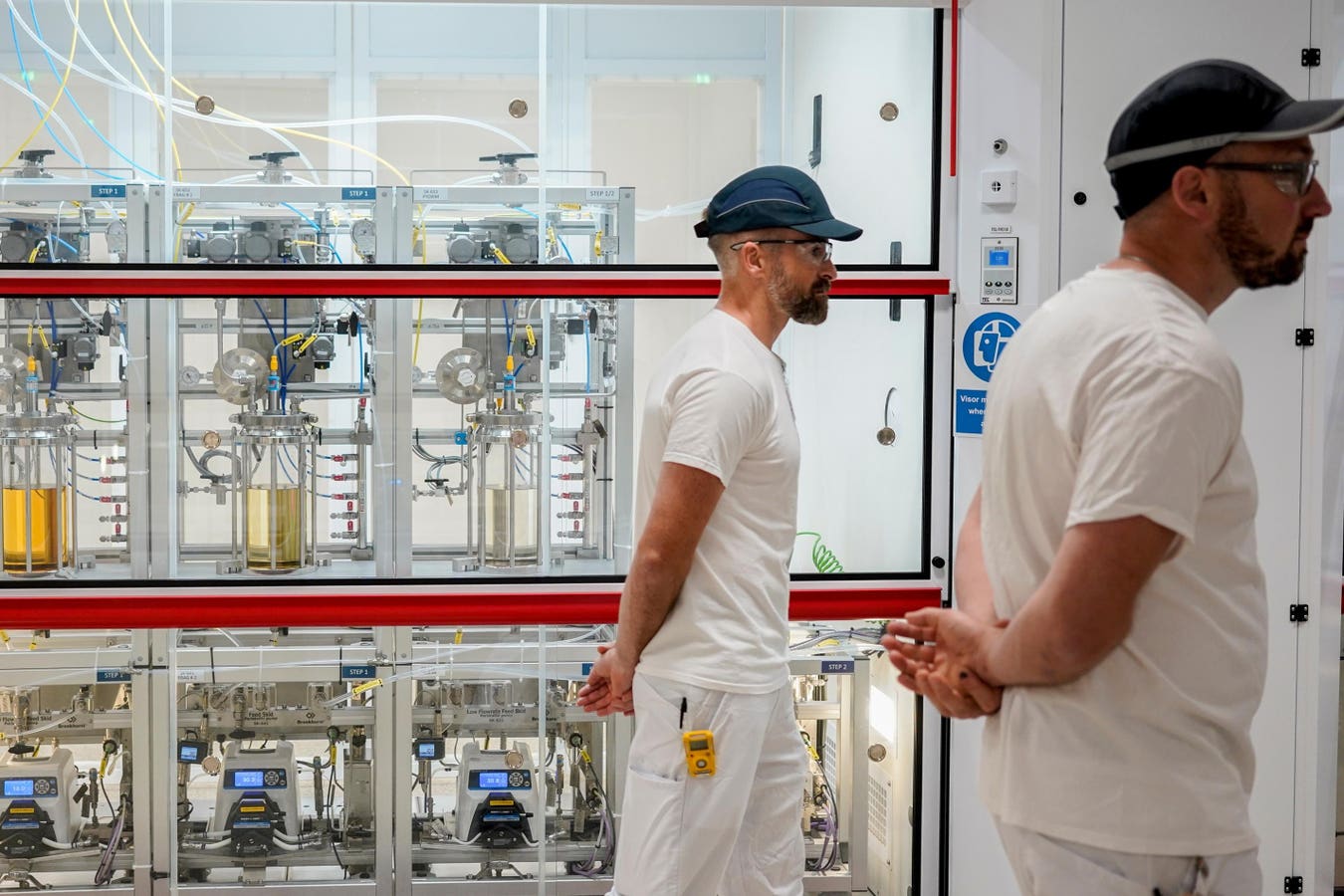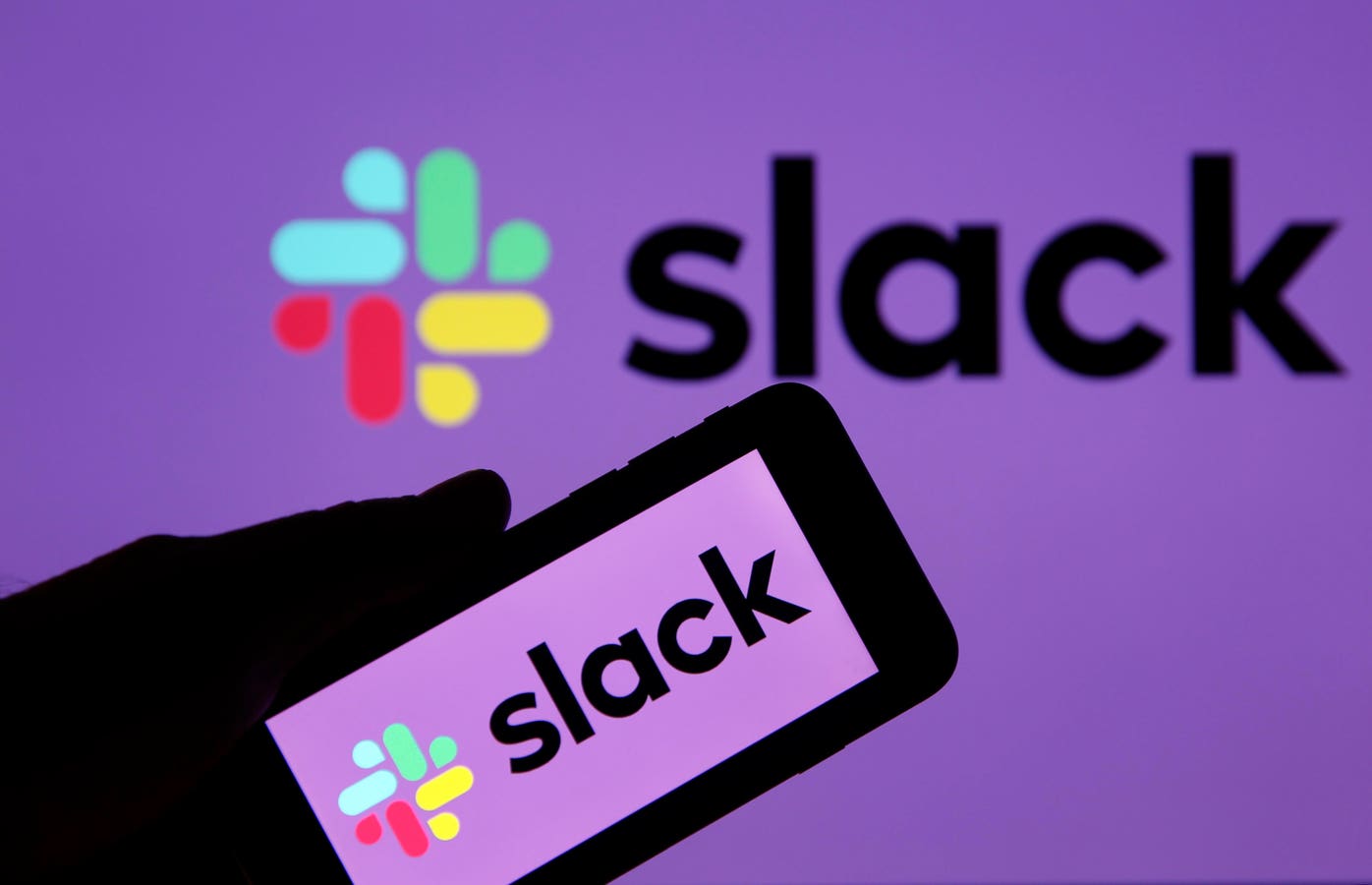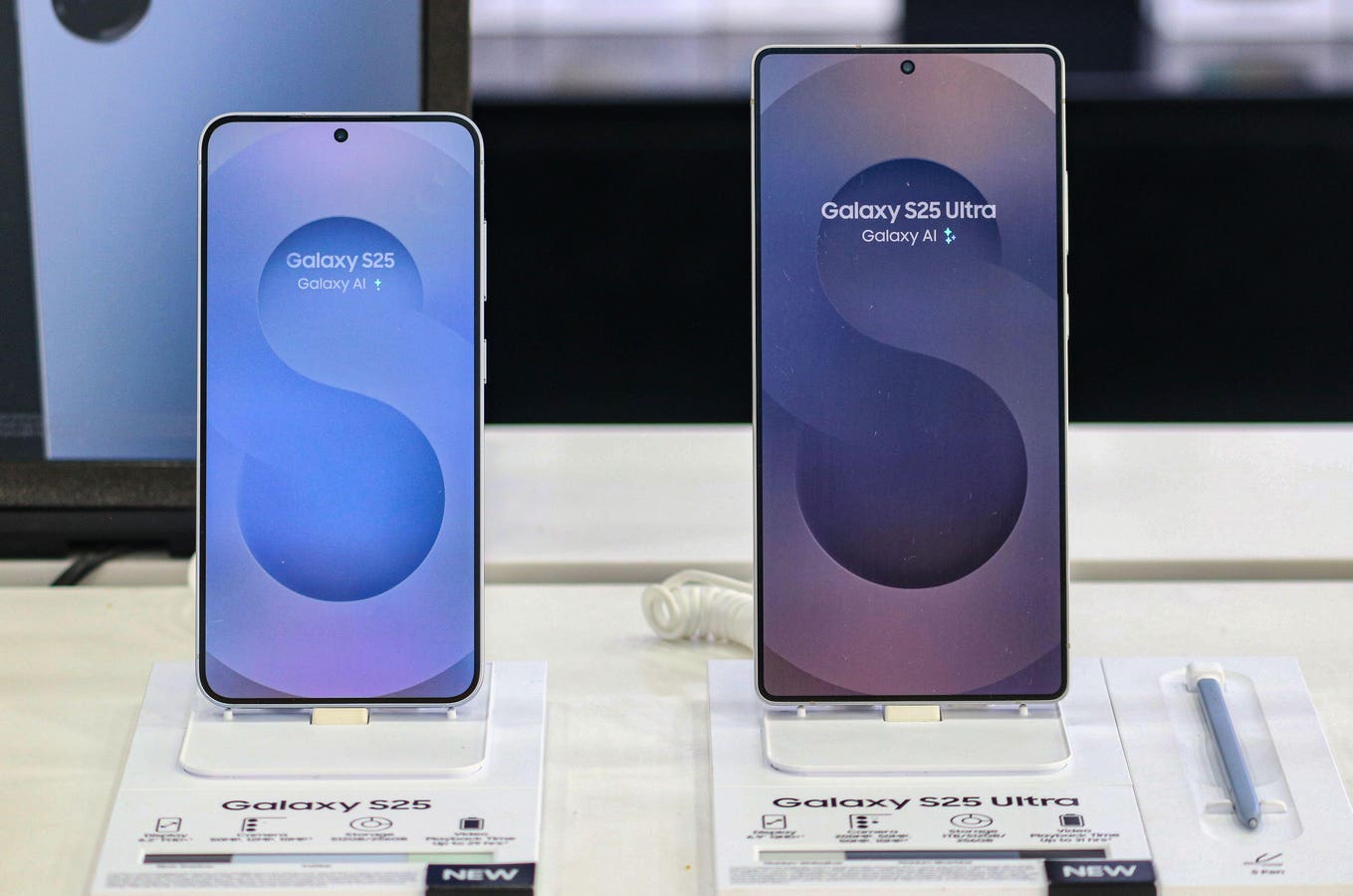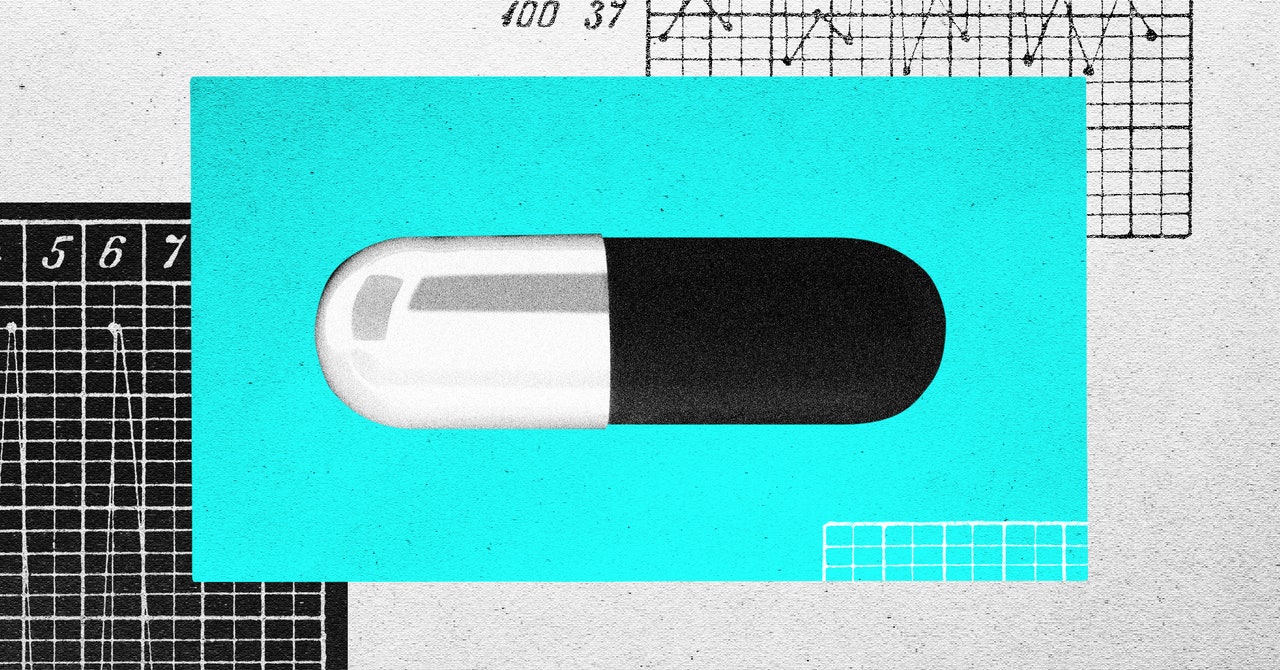In this week’s edition of InnovationRx, we look at the impact of Trump’s tariffs on drugs made in Europe, Halle Berry’s menopause startup, Ambience Healthcare’s $243 million fundraise, and more. To get it in your inbox, subscribe here.
Eli Lilly’s plant in Kinsale, Ireland
Bloomberg Finance
For months, there have been questions about what the impact of Trump’s tariffs on drugs would be. On Sunday, we got part of the answer: Under the trade deal reached between the U.S. and the European Union, medicines imported from Europe will face a 15% tariff.
That tax hike will hit some of the biggest blockbuster drugs, including Keytruda (for cancer) and Wegovy (for obesity), as well as less well-known brand name medications. Questions remain about generics: European Commission President von der Leyen said on Sunday that certain generics would be exempt, but the White House fact sheet on the deal lists no such exceptions.
What is clear, though, is that the cost of the tariff will likely be passed to American consumers, both directly and indirectly through higher insurance premiums. ING analyst Diedrick Stadig told Forbes that once stockpiled medicines are gone, the tax would add around $13 billion to the cost of imported drugs.
There will be indirect costs, too. As companies look to manage the impact of Trump’s tariffs by building out U.S. manufacturing, they could potentially cut spending in other areas, including research and development, to compensate, Emarketer analyst Rajiv Leventhal told Forbes. “They’re going to have to cut back in other areas to not have Wall Street panic,” he said.
Halle Berry’s Menopause Act
Halle Berry
Cliff Watts for Forbes
In May 2024, Halle Berry, the actress and former model, shouted three words on Capitol Hill to a bipartisan group of senators (all women): “I’m in menopause!”
Berry, now 58, first became focused on the issue, as both an entrepreneur and an advocate, after her own perimenopause was misdiagnosed as herpes. She originally founded Respin as a wellness and exercise website in 2020, but relaunched it this February as a menopause-focused healthcare company.
With less than $5 million in funding from investors including Khosla Ventures, Respin is still in its earliest days. Telehealth visits just launched in July and revenue is mostly nonexistent. But Berry’s work, profiled in Forbes as part of this year’s 50 Over 50 list, is just one indication, along with VC-backed Midi Health, which has raised more than $100 million, that menopause is finally getting some attention.
“This is my greatest act,” Berry tells Forbes. “And I couldn’t have imagined that this would be my greatest act because I think as women, we’ve been afraid to age.”
Read more here.
BIOTECH AND PHARMA
Sarepta Therapeutics is again shipping its gene therapy Elevidys for patients with Duchene muscular dystrophy (a particularly severe form of the disease) who are able to walk. The latest move came after the FDA recommended the removal of a voluntary hold it had previously placed on the drug. The face-off between Sarepta and the FDA followed the deaths of three people from Elevidys or a similar drug (that’s in early-stage clinical trials) from liver failure. Duchenne patients and their families had put pressure on the FDA to reverse the decision, though the agency said it will continue to investigate the deaths.
On Tuesday night, Vinay Prasad, the FDA’s top vaccine and gene therapy official, abruptly resigned after just three months after he took the job. Prasad, head of the Center for Biologics Evaluation and Research, had faced heavy criticism from the right over his handling of Sarepta, including an op-ed from The Wall Street Journal’s editorial board and derision from pro-Trump influencer Laura Loomer. The Health and Human Services Department has not yet said who will fill his role.
DIGITAL HEALTH AND AI
Open AI-backed startup Ambience Healthcare raised $243 million – one of the year’s largest VC investments in healthtech – led by Oak HC/FT and Andreessen Horowitz. The new funding increases Ambience’s valuation to more than $1 billion, according to Bloomberg. Founders Michael Ng, the company’s CEO, and Nikhil Buduma, its chief scientist, previously founded digital health startup Remedy Health.
Plus: Sword Health, the $4 billion (valuation) digital health startup, launched a new AI division to help payers and providers increase operational efficiency.
MEDTECH
Imagine getting a heart valve replacement and being able to resume your normal, daily activities a week later. That’s the reality for four patients at the Cleveland Clinic, according to case studies it presented earlier this year. Its surgeons were able to use robots to perform the aortic valve replacement surgery through the patients’ necks, avoiding the need for open-heart surgery and its accompanying long, painful recovery. One patient even reported he’d resumed running in the gym a week after he was discharged.
PUBLIC HEALTH AND HOSPITALS
Millions of undergraduate and graduate students rely on Medicaid for health coverage. As long as they attend school more than half-time, they should meet the new work requirement added in the recently passed “One Big Beautiful Bill”. But yet-to-be issued rules and procedures, along with paperwork problems and administrative snafus, could still put many of them at risk. One big problem: The law doesn’t actually define what “half-time enrollment” means. Another: The law requires applicants to look back one month to see if they met the work requirement, and it’s unclear what that means for a new student who was, for example, on summer break the month before they enrolled. This and many other unanswered questions will likely leave millions of college students’ health insurance in limbo as the legislation is implemented.
WHAT WE’RE READING
Some psychiatric patients may actually have treatable autoimmune conditions. The New Yorker explores the story of one schizophrenia patient who suddenly recovered.
Scientists are using AI to boost efforts to spot flags for diseases of extreme tiredness, including long COVID and chronic fatigue syndrome.
China is facing a major outbreak of the mosquito-borne disease chikungunya, which has infected more than 4,000 people.
White House officials scrapped a plan by the Office of Management and Budget that would have effectively halted NIH grants, and the funds are set to flow again.
Tribal health officials are working to fill in vaccination gaps as the U.S. measles outbreak continues to spread.
UnitedHealth Group’s profit fell to $3.4 billion in the second quarter, from $4.2 billion in the same period last year, as it grapples with rising costs of providing health insurance to millions of Americans.
Shares of Novo Nordisk, which makes Wegovy and Ozempic, dropped more than 21% Tuesday, after it cut its guidance to analysts on sales and profit for the year.
MORE FROM FORBES








